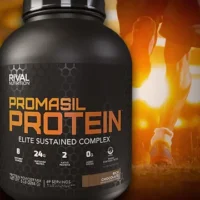Knowledge BaseYou're Questions Answered
Is protein powder bad for your liver?
Protein powder is commonly used to support muscle growth, recovery, and overall nutrition. However, there is sometimes concern about the potential impact of high protein intake, including protein supplements, on liver health. Understanding the relationship between protein powder consumption and liver health can help you make informed decisions about its use in your diet.
How Protein Powder Affects the Liver
1. Protein Metabolism and the Liver
The liver plays a central role in protein metabolism, including the breakdown of amino acids and the synthesis of essential proteins. In healthy individuals, moderate to high protein intake is typically well-tolerated and does not harm liver function1. The body can effectively process and utilize the amino acids from protein powder as long as the liver is functioning properly.
2. Concerns with Excessive Protein Intake
Consuming excessive amounts of protein, whether from whole foods or supplements, can lead to an increased workload for the liver. However, research indicates that this is only a concern for individuals with pre-existing liver conditions2. For healthy people, protein powder and higher protein diets are generally safe and do not cause liver damage.
Protein Powder and Pre-Existing Liver Conditions
For individuals with liver disease, such as cirrhosis or other chronic liver conditions, protein intake may need to be monitored. The liver’s reduced capacity to process protein could lead to an accumulation of ammonia, a byproduct of protein metabolism, potentially worsening the condition3. In such cases, a healthcare provider should be consulted to determine an appropriate level of protein intake.
Choosing the Right Protein Powder
If you are concerned about liver health, consider choosing high-quality protein powders that contain fewer additives, artificial ingredients, or potential allergens that could stress the liver. Options like plant-based protein powders, such as pea or rice protein, and those free of added artificial flavors and sweeteners can be easier for the body to process4.
Best Practices for Safe Protein Intake
- Consult a Healthcare Provider: If you have any pre-existing liver conditions, seek medical advice before significantly increasing your protein intake.
- Stay Hydrated: Proper hydration supports the liver’s metabolic processes and helps the body process protein more efficiently.
- Moderate Consumption: Stick to the recommended daily protein intake, which is approximately 0.36 grams per pound of body weight (0.8 grams per kilogram) for the average adult, and higher for athletes or those engaged in heavy training5.
- Philips, T., & Hector, A. J. (2015). Protein and muscle health during aging: Benefits and concerns related to animal- and plant-based protein sources. Advances in Nutrition, 6(5), 618-623.
- Rothschild, M. A., Oratz, M., & Schreiber, S. S. (1975). Amino acid metabolism and hepatic encephalopathy. The American Journal of Clinical Nutrition, 28(5), 461-466.
- Plauth, M., Cabre, E., Riggio, O., et al. (2006). ESPEN guidelines on enteral nutrition: Liver disease. Clinical Nutrition, 25(2), 285-294.
- Hoffman, J. R., & Falvo, M. J. (2004). Protein–which is best? Journal of Sports Science & Medicine, 3(3), 118-130.
- Tipton, K. D., & Wolfe, R. R. (2001). Exercise, protein metabolism, and muscle growth. International Journal of Sport Nutrition and Exercise Metabolism, 11(1), 109-132.
Related Questions
Protein vs Protein

Your Answer
We are a participant in the Amazon Services LLC Associates Program, an affiliate advertising program designed to provide a means for us to earn fees by linking to Amazon.com and affiliated sites.


